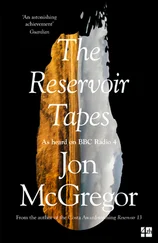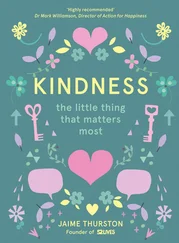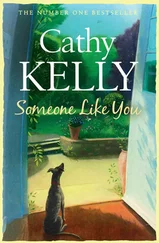back
This place I’ve grown up in isa landscape of lines,
a world ofthe parallel & perpendicular.
The straightest line of all is the hard blur of the horizon.
- - — - - — - - — - - — - - — - - — -
A single unbending line which encircles the day.
- - — - - — - - — - - — - - — - - — -
When I wasAs a child I would spin around
with my eyes on the horizontrying to catch the place where
the line turned or bent but I never could
back
the mystery of the straight, encircling line.
- - — - - — - - — - - — - - — - - — -
(All the) other lines find their way to the horizon sooner or later
back
High lines, (Years ago, playing in the
connecting lines: telegraph wires furrows while your father
railway tracks watched, you looked up +
canals saw a line of boats gliding
drains through the sky. The fear
rivers you felt, seeing those
boats above your head.)
Low lines,
boundary lines: ditches (No hedges or walls
roads between fields here,
paths only the ditches + roads.
Ditches to stop the sea
reclaiming what it owns.)
back
The lines of this place are sometimes washed out by floods.
Obliteration.
Water erasing the (Cornelius the Dutchman
manmade geometry digging his way through
restoring this place the 17th century.)
to the sea it once was.
Sometimes it will be rain, swelling the rivers until they break
through
and rush over the fields,
settling across hundreds of acres for weeks at a time,
sky below as well as above, clouds & seabirds gliding overhead
sky above as well as below, clouds & seabirds gliding overland.
back
Or snow will cover everything, blocking drains & roads,
……….
Mothers forbidding their children to leave the house.
Lost children in the fields.
You said you don’t remember your mother telling you to go out,
but you would have been too young to remember/to go out.
back
Sometimes the fog
will
come in with
the
floods and
our world
will
become
unmappable, alien,
precarious.
I didn’t say you said it was my fault
back
These same floods that obliteratebring life to the land, make
our soil the richest in the country.
At ploughing time the smell of the earth hangs in the air,
a smell like apple bruises and horse chestnut shells.
A smell of pure energy.
back
Your father claimed this ground
would grow five-pound notes
if you planted a shilling.
That I would like to see.
back
Flatness | straight lines | a manmade geometry.
The sound of metal on soil // the sky above
This is the landscape you Iwe grew up in.
This is the landscape which grew uswhich made us.
back
The sea wants to be here. we shouldn’t be surprised when
will give to that
Our engineering gives way before the sea’sdesire.
back
You didn’t say that. That’s not what you said
back
to name these places
The words we’ve been given by our ancestorshave no poetry.
Our waterways are called drains,
not rivers or streams or brooks or burns:
Thirty Foot Drain
Sixteen Foot Drain
(and the closest to grandeur, this) Hundred Foot Drain
our farms named for anonymity: Lower Field Farm
Middle Field Farm
Sixteen Foot Farm
People don’t come here because they’ve been
People are not drawn here by the romantic sound of the place.
People don’t much come here at all, and so the landscape
remains empty and
retains its beauty and
the beauty of this place is not in the names but the shapes
the flatness / hugeness / completeness of the landscape.
Only what is beneath the surface of the earth is hidden
(and sometimes not even that)
andeverything else ismade visible beneath the sky.
back
When the dawn comes
when the first light slides in from the east
the sky is the colour of marbles.
A thin, glassy grey.
Everything is dark away to the west,
silhouettes & shadows clinging to the last of the night,
but at the eastern edge of thehorizon there is light.
AndIf you have the time to stand and watch,
you can trace the movement of the light into the morning.
The lines of fields & roads creeping
towards you and then away to the west
until the wholegeometry of the day is revealed.
AndThe water in the drains begins to steam & shine.
And you’ll noticeThe workers start to arrive,
stepping out from minibuses and spreading across the fields,
shadows crouching & shuffling
along the crop-lineslines of the crops.
back
When the mid-morning comes
the sky is the colour of flowering linseed
a pale-blue hint of
the full colour to come
back
Sometimes there will be clouds, joining together to form arches
from horizon to horizon
stretching
tearing
scattering patterns across the fields.
Sometimes these clouds bring rain,
and the sky will darken
But the rain will pass
the sky be brighter clearer
back
The workers more visible,
returning to their trays & boxes after the rain,
lifting food from the ground,
sorting
trimming
laying down
moving along the line.
Occasionally one will stand, lifting cramped arms to the sky before
returning to the soil.
Those lifted arms, that arching back.
back
When the noon-time comes
(when there’s a moment of stillness and silence)
the sky is the colour of the summer noon:
a blue with no comparison
the pure deep blue of the summer noon in this place.
No clouds
no movement
you hold your breath and turn and follow the circle of the
unbending horizon linehorizon’s circle.
back
The workers eat their lunch in silence, gathered beside the road,
looking out across the fields
the way fishermen watch the sea.
back
Celery &
spring onions &
leeks &
lettuces &
fragile crops which would be ruined by machinery.
back
When the late afternoon comes
(when the light is only beginning to fade from the dayfall)
the sky is the colour of a freshly forming bruise.
The workers are slowing their pace
pausing more frequentlyto savour
the warmth of the soil in their hands
aware nowof the slight chill in the air
waiting
for the word that the day is over.
back
- - — - - —- - — - - —
What placement can do.
- - — - - — - - — - - —
back
When the evening comes
(before the embers of the closing of the day)
the sky is the colour of your father’s eyes.
A darkening, muddied blue,
hiding shadows
turning away. Awake, still;
alive, just;
but going.
Going gently.
The workers have left the field and collected their pay,
measured by the weight of the food they have gathered.
The marks of their footprints are fading,
dusted over with soil blown in by a wind from the sea.
back
What he thought he’d find.
There is no history here.
No dramatic finds of Saxon villages.
No burial mounds or hidden treasures.
No Tollund Man.
Only the rusted anchors our ploughs drag up,
left when these fields were the sea.
back
Those rusted anchors have been sunk in the soil
eversince before it was drained, and sometimes
the turning of the earth brings them closer to the surface
and sometimes
it willsends them further down.
Читать дальше
Конец ознакомительного отрывка
Купить книгу
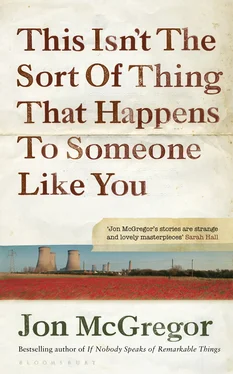
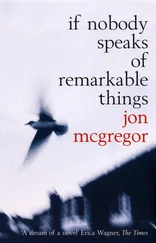


![Нил Уолш - Единственное, Что Имеет Значение [The Only Thing That Matters]](/books/393630/nil-uolsh-edinstvennoe-chto-imeet-znachenie-the-onl-thumb.webp)
